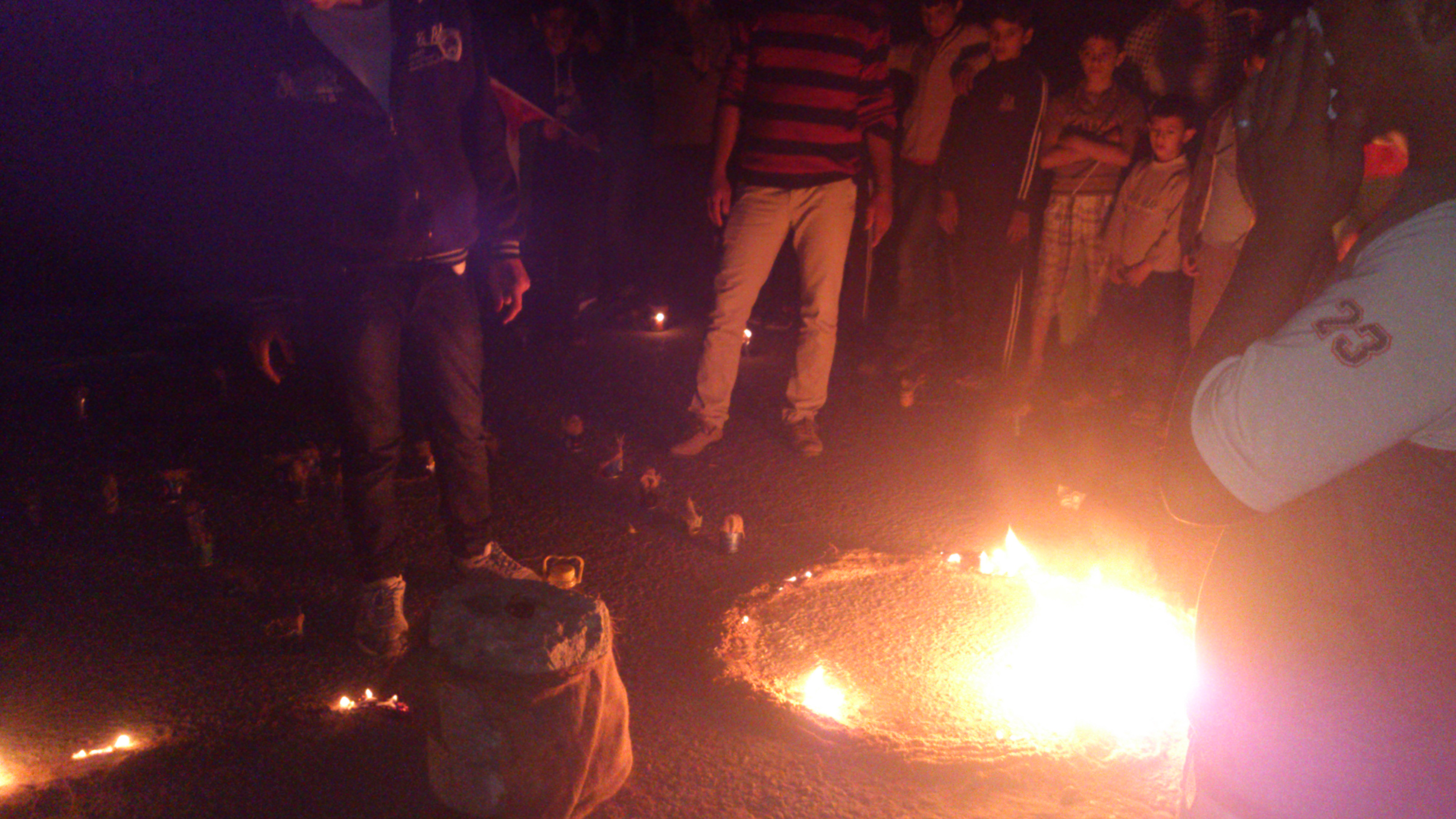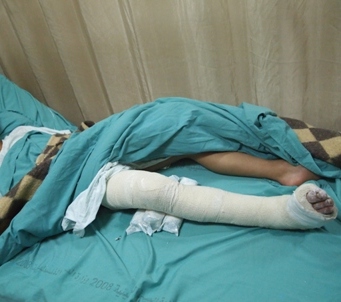Year: 2013
-
Photo Essay: Sabastiya remembers 65 years of the Nakba
22th May 2013 | International Solidarity Movement, Team Nablus | Sabastiya, Occupied Palestine In community remembrance of the Nakba, Sabastiya villagers observed 15 minutes of a full lights-out.
-
Prelude to land theft: a livelihood trashed in Aqraba
21st May 2013 | International Solidarity Movement, Team Nablus | Aqraba, Occupied Palestine Seven hundred olive trees were uprooted first thing in the morning of 16th May while a bulldozer got to work destroying the farmer’s concrete water storage facility and surrounding dry stone walls and fences in Aqraba. The Israeli army, who did some…
-
Updated: 13 year-old boy shot at by settlers, tortured by soldiers, denied medical attention
19th May 2013 | International Solidarity Movement, Team Nablus | Qaryut, Occupied Palestine UPDATED: The 13-year-old Qaryut boy attacked by settlers on 16 May completed an operation on his lower leg and foot on Friday and has since been released to recover at home. He also provided a full account of his attack and the…


